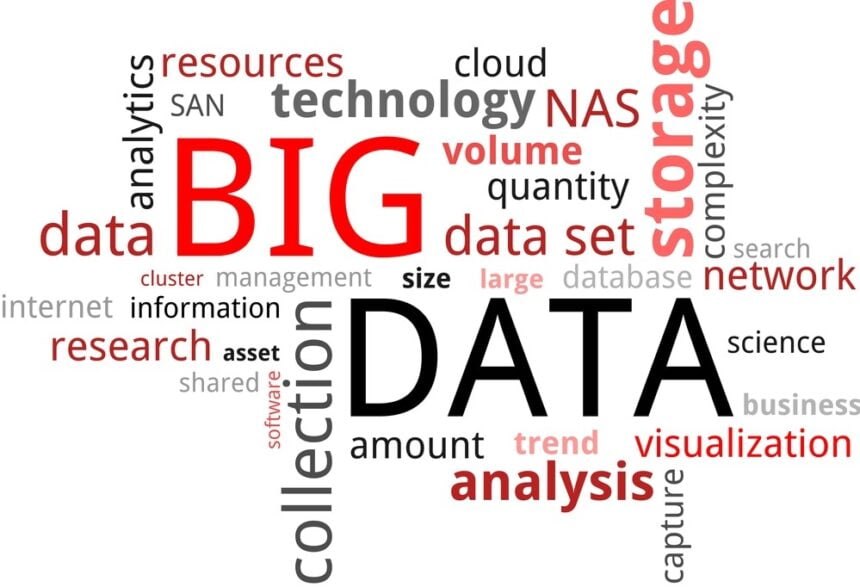Many people agree that big data is here to stay and not a mere fad. Something that is not so clear-cut to everyday individuals concerns the future trends of big data analytics. These technologies are quickly evolving. What does that mean for the businesses that use them now or will soon?
- 1. A Sharper Focus on Data Governance
- 2. Augmented Analytics Will Speed Decision-Making
- 3. Big Data Will Supplement — Not Replace — Researchers’ Work
- 4. Cloud Data Will Shape Customer Experiences
- 5. The Increasing Coexistence of Public and Private Clouds
- 6. Cloud Technology Will Make Big Data More Accessible
What is big data in simple terms? It encompasses both the structured and unstructured information kept by an entity that is collectively too large for traditional systems and techniques to process. It also relates to the speed of the processing capability. Some businesses need insights in virtually real-time, and big data software can provide them, whereas traditional methods could not.
Understanding what’s ahead for big data technologies and use cases is more straightforward if people tune in to what experts have to say. Here are some glimpses into what’s possible, based on their perceptions.
1. A Sharper Focus on Data Governance
As companies continue collecting progressively large quantities of big data, the risk goes up that they may misuse it. That’s why many experts expect a renewed emphasis on data governance. Peter Ballis, CEO of Sisu Data, said, “Beyond 2020, governance comes back to the forefront.”
He also shared his beliefs about the role of data governance: “As platforms for analysis and diagnosis expand, derived facts from data will be shared more seamlessly within a business as data governance tools will help ensure the confidentiality, proper use and integrity of data improve to the point they fade into the background again.”
2. Augmented Analytics Will Speed Decision-Making
Analysts at Gartner see augmented analytics shaping big data future trends. It involves applying technologies like artificial intelligence (AI), machine learning and natural language processing to big data platforms. This helps organizations reach decisions faster and recognize trends more efficiently.
Rita Sallam, vice president and analyst at Gartner, suggested what may be on the horizon: “[This trend is] really about democratizing analytics … It is really about getting insight in a fraction of the time with less skill than is possible today.”
3. Big Data Will Supplement — Not Replace — Researchers’ Work
Many of today’s big data platforms are so advanced that it’s understandable if people start expecting a time not long from now when it replaces hardworking humans. Dr. Aidan Slingsby, a senior lecturer and director of a data science degree program at City University of London, doesn’t see that outcome as likely — especially for applications such as using big data to assist with market research.
“Data science helps identify correlations. So data scientists can provide patterns, networks, dependencies that may not have been otherwise known. But, for data science to really add an extra layer of value, it needs a market researcher who understands the context of the information to interpret the ‘what’ from the ‘why’.”
Ben Page, chief executive of Ipsos MORI, echoed that sentiment when he said, “Market research is effectively about the understanding of human beings and their behavior and motivations. It is a realm that data science cannot penetrate on its own.” As a case in point, Ipsos MORI has more than 1,000 data scientists within its global team, but the company employs other professionals, including ethnographers and behavioral scientists, too.
4. Cloud Data Will Shape Customer Experiences
Cloud computing is a major topic of discussion when people weigh in about big data trends. Here are a few things those in the know expect to see regarding what’s happening now and what could occur soon when users combine big data with cloud computing.
Nick Piette, director of product marketing and API services at Talend, believes that one of the future trends of big data analytics relates to using the information to enhance customer experiences. He also thinks that having a cloud-first mindset will help.
“More and more brand interactions are happening through digital services, so it’s paramount that companies find ways to improve updates and deliver new products and services faster than they ever have before,” he said.
How does the cloud fit into that? “With speed in mind, companies will be led to adopt a modern cloud-native mindset that promotes containerized deployments using modern microservices architectures that are developed and managed using the latest DevOps methodologies,” Piette predicted
5. The Increasing Coexistence of Public and Private Clouds
Many of today’s companies are already working in the cloud, making a shift to it or strongly considering doing it soon. Jeff Clarke, chief operating officer at Dell Technologies, believes that 2020 will be the first year for businesses to realize they can have both public and private clouds without choosing one or the other.
He noted: “The idea that public and private clouds can and will coexist becomes a clear reality in 2020. Multicloud IT strategies supported by hybrid cloud architectures will play a key role in ensuring organizations have better data management and visibility while also ensuring that their data remains accessible and secure.”
Clarke also looks forward to a future where private clouds do not only exist within data centers. “As 5G and edge deployments continue to roll out, private hybrid clouds will exist at the edge to ensure the real-time visibility and management of data everywhere it lives. That means organizations will expect more of their cloud and service providers to ensure they can support their hybrid cloud demands across all environments.”
6. Cloud Technology Will Make Big Data More Accessible
One of the main benefits of cloud computing is that it allows people to access apps from anywhere. Andy Monfried, CEO and founder of Lotame, sees a time when most people in the workforce will know how to work with self-service big data apps. He explained:
“In 20 years, big data analytics will likely be so pervasive throughout business that it will no longer be the domain of specialists. Every manager, and many nonmanagerial employees, will be assumed to be competent in working with big data, just as most knowledge workers today are assumed to know spreadsheets and PowerPoint. Analysis of large datasets will be a prerequisite to almost every business decision, much as a simple cost/benefit analysis is today.”
He then tied that prediction to big data technologies that work in the cloud. “This doesn’t mean, however, that everyone will have to become a data scientist. Self-service tools will make big data analysis broadly accessible. Managers will use simplified, spreadsheet-like interfaces to tap into the computing power of the cloud and run advanced analytics from any device.”
Big Data Computing and Clouds: Trends and Future Directions
Companies that are at the point of deciding which big data tools to use and why should study these trends to make better-informed choices. These are not the only future trends of big data worth noting, but they seem set to cause substantial impacts.










